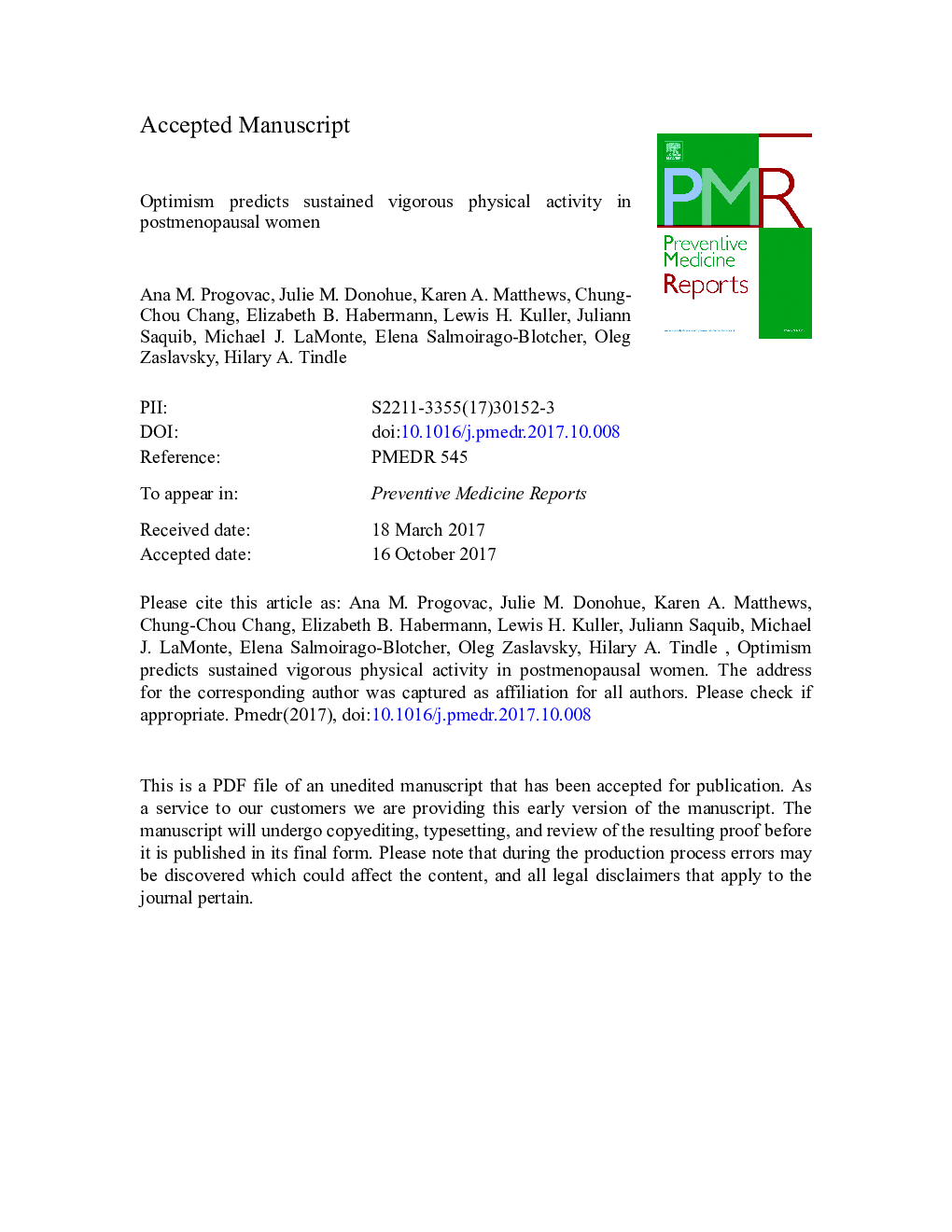| Article ID | Journal | Published Year | Pages | File Type |
|---|---|---|---|---|
| 8818718 | Preventive Medicine Reports | 2017 | 26 Pages |
Abstract
Optimism and cynical hostility are associated with health behaviors and health outcomes, including morbidity and mortality. This analysis assesses their association with longitudinal vigorous physical activity (PA) in postmenopausal women of the Women's Health Initiative (WHI). Subjects include 73,485 women nationwide without history of cancer or cardiovascular disease (CVD), and no missing baseline optimism, cynical hostility, or PA data. The Life Orientation Test-Revised Scale measured optimism. A Cook Medley questionnaire subscale measured cynical hostility. Scale scores were divided into quartiles. Vigorous PA three times or more per week was assessed via self-report at study baseline (1994-1998) and through follow-up year 6. Descriptive analysis mapped lifetime trajectories of vigorous PA (recalled at ages 18, 25, 50; prospectively assessed at baseline, and 3 and 6 years later). Hierarchical generalized linear mixed models examined the prospective association between optimism, cynical hostility, and vigorous PA over 6 years. Models adjusted for baseline sociodemographic variables, psychosocial characteristics, and health conditions and behaviors. Vigorous PA rates were highest for most optimistic women, but fell for all women by approximately 60% between age 50 and study baseline. In adjusted models from baseline through year 6, most vs. least optimistic women were 15% more likely to exercise vigorously (p < 0.001). Cynical hostility was not associated with lower odds of longitudinal vigorous PA after adjustment. Results did not differ by race/ethnicity or socioeconomic status. Higher optimism is associated with maintaining vigorous PA over time in post-menopausal women, and may protect women's health over the lifespan.
Related Topics
Health Sciences
Medicine and Dentistry
Public Health and Health Policy
Authors
Ana M. Progovac, Julie M. Donohue, Karen A. Matthews, Chung-Chou H. Chang, Elizabeth B. Habermann, Lewis H. Kuller, Juliann Saquib, Michael J. LaMonte, Elena Salmoirago-Blotcher, Oleg Zaslavsky, Hilary A. Tindle,
